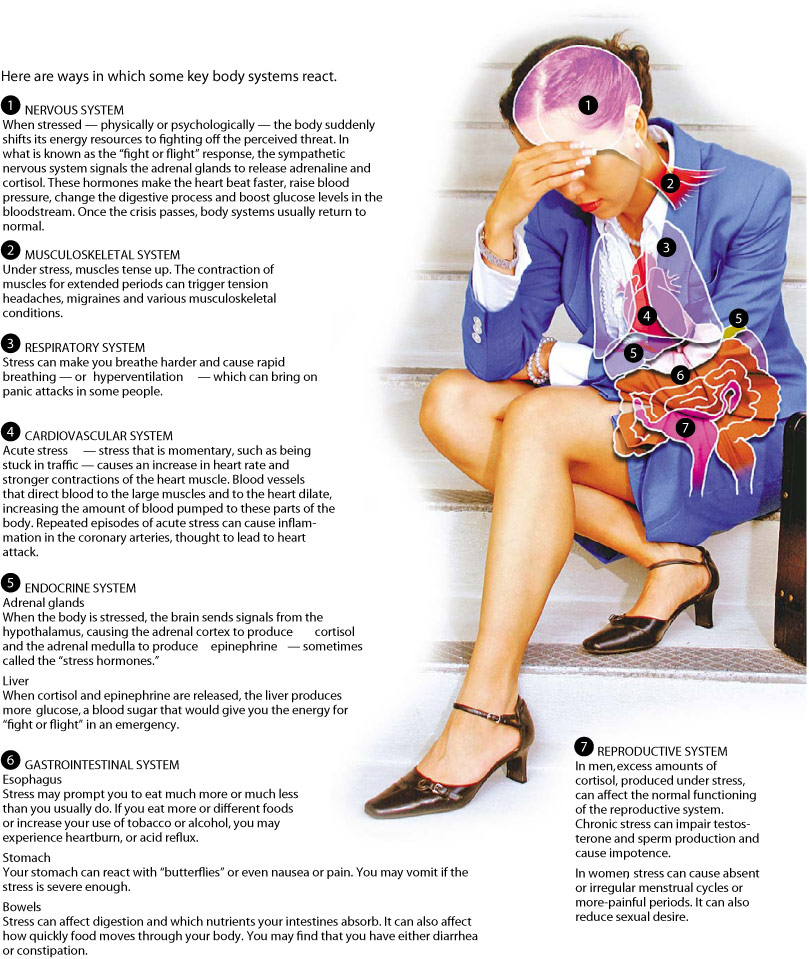Finances, relationships, employment or the lack thereof, can all bring stress to your life. But what is stress really doing to your body? Dr. Charles Hebert of Rush Medical Center, and Joanna Hakimi, a therapist with Symmetry Counseling, discuss the effects stress has on your body, and ways to manage your stress.
View a graphic of how stress impacts your health below, along with signs and symptoms. Read about 50 ways to reduce stress here.

50 Common Signs and Symptoms of Stress
1. Frequent headaches, jaw clenching or pain
2. Gritting, grinding teeth
3. Stuttering or stammering
4. Tremors, trembling of lips, hands
5. Neck ache, back pain, muscle spasms
6. Light headedness, faintness, dizziness
7. Ringing, buzzing or “popping sounds
8. Frequent blushing, sweating
9. Cold or sweaty hands, feet
10. Dry mouth, problems swallowing
11. Frequent colds, infections, herpes sores
12. Rashes, itching, hives, “goose bumps”
13. Unexplained or frequent “allergy” attacks
14. Heartburn, stomach pain, nausea
15. Excess belching, flatulence
16. Constipation, diarrhea, loss of control
17. Difficulty breathing, frequent sighing
18. Sudden attacks of life threatening panic
19. Chest pain, palpitations, rapid pulse
20. Frequent urination
21. Diminished sexual desire or performance
22. Excess anxiety, worry, guilt, nervousness
23. Increased anger, frustration, hostility
24. Depression, frequent or wild mood swings
25. Increased or decreased appetite
26. Insomnia, nightmares, disturbing dreams
27. Difficulty concentrating, racing thoughts28. Trouble learning new information
29. Forgetfulness, disorganization, confusion
30. Difficulty in making decisions
31. Feeling overloaded or overwhelmed
32. Frequent crying spells or suicidal thoughts
33. Feelings of loneliness or worthlessness
34. Little interest in appearance, punctuality
35. Nervous habits, fidgeting, feet tapping
36. Increased frustration, irritability, edginess
37. Overreaction to petty annoyances
38. Increased number of minor accidents
39. Obsessive or compulsive behavior
40. Reduced work efficiency or productivity
41. Lies or excuses to cover up poor work
42. Rapid or mumbled speech
43. Excessive defensiveness or suspiciousness
44. Problems in communication, sharing
45. Social withdrawal and isolation
46. Constant tiredness, weakness, fatigue
47. Frequent use of over-the-counter drugs
48. Weight gain or loss without diet
49. Increased smoking, alcohol or drug use
50. Excessive gambling or impulse buying
Source: The American Institute of Stress



